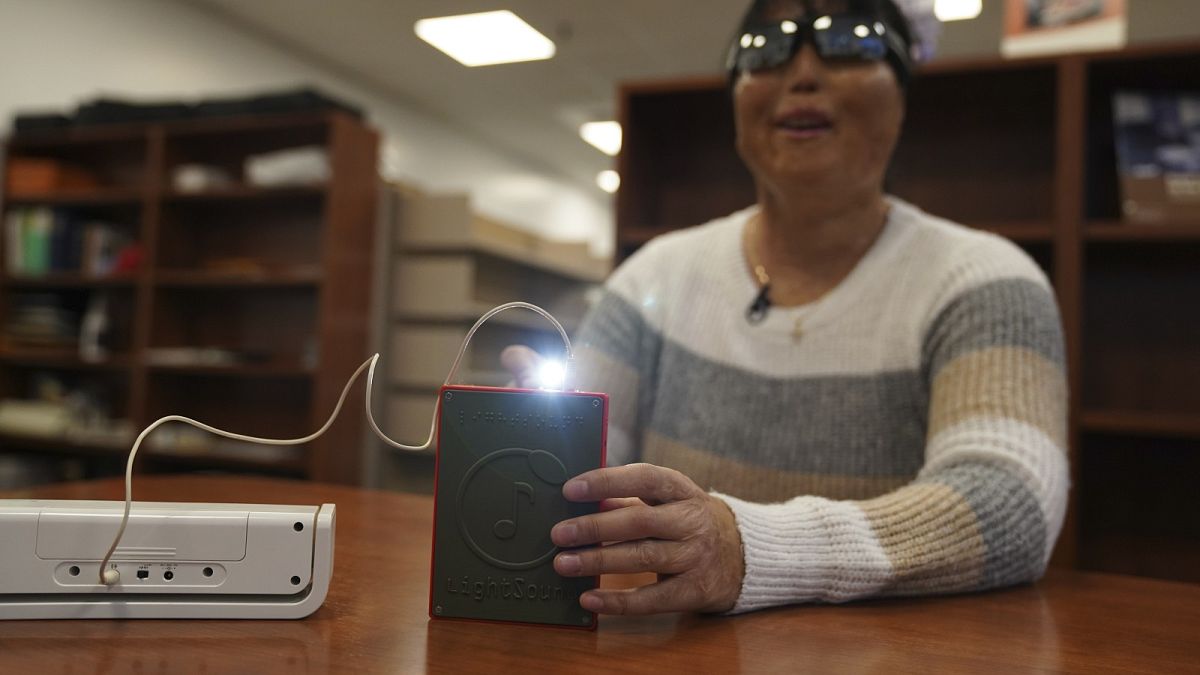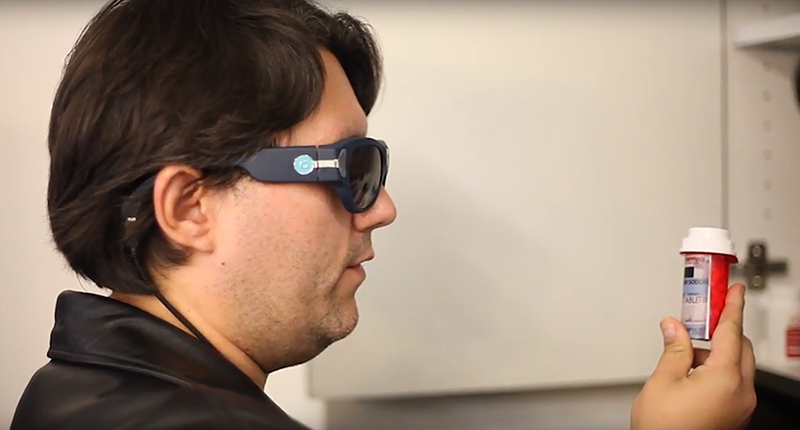Screen Readers for the Blind: Essential Solutions for Digital Access
Screen Readers for the Blind: Essential Solutions for Digital Access
Blog Article
Empowering Self-reliance With Assistive Technology for the Blind
The assimilation of assistive modern technology right into the lives of individuals with aesthetic disabilities represents a significant development in advertising independence and self-sufficiency. From cutting-edge screen visitors to advanced clever walking sticks, these tools not only improve day-to-day navigation and interaction but additionally empower individuals to involve meaningfully in different facets of life. As we explore the myriad advantages and real-world applications of these innovations, it ends up being crucial to check out the hidden elements that contribute to their effectiveness and the potential for future advancements in this vital area.
Review of Assistive Modern Technology

The advancement of assistive technology is grounded in concepts of inclusivity and empowerment. Innovations in software, equipment, and sensory improvements supply users with options tailored to their particular needs. From display visitors that convert text to speech, to tactile devices that convey info with touch, these devices change the way people involve with their surroundings.
Along with useful applications, assistive modern technology cultivates higher social addition and participation in various sectors, consisting of education and learning and work (Wearable technology for low vision). As r & d continue to advance, the possibility for assistive innovation to further improve the lives of visually impaired individuals stays encouraging, leading the means for a much more fair society where everybody can flourish
Kinds Of Assistive Gadgets
A range of assistive tools have actually arised to support people with visual problems, each created to fulfill details needs and boost everyday performance. These tools range from low-tech remedies to state-of-the-art technologies, supplying varied choices for customers.
Low-tech devices include magnifiers and large-print products that assist in analysis and writing. Braille tools, such as Braille slates and stylus pens, enable responsive analysis and interaction. Orientation and movement aids, like white walking canes, aid customers navigate their environment securely.
On the greater end of the spectrum, electronic magnifying systems and screen viewers use significant assistance. Electronic magnifiers allow users to enlarge message and images on screens, while display readers convert digital web content into manufactured speech, facilitating accessibility to info on computers and smartphones.
Smartphone applications likewise play a critical role, offering features like text acknowledgment and navigating assistance. Wearable modern technology, such as clever glasses furnished with augmented truth, is becoming an appealing device to enhance situational awareness.
Benefits of Assistive Innovation
The assimilation of assistive modern technology considerably boosts the quality of life for people with aesthetic impairments. These technologies empower users by advertising independence, allowing them to navigate their environments extra properly and execute day-to-day tasks with greater convenience. Screen visitors and magnifying software allow people to gain access to digital information, promoting specialist and educational possibilities that may have previously been out of reach.
In addition, assistive gadgets such as smart walking sticks and GPS applications give real-time navigating help, enhancing mobility and safety. This increased autonomy not only boosts self-confidence but additionally motivates social involvement, permitting individuals to participate even more fully in their neighborhoods.
Assistive technology likewise facilitates interaction, aiding users get in touch with others through her explanation voice acknowledgment and text-to-speech applications. This capability is crucial for maintaining connections and accessing crucial details.
Additionally, the personalization options available with many assistive innovations ensure that users can tailor tools to their specific demands, even more enhancing functionality and efficiency. Generally, the advantages of assistive modern technology for individuals with aesthetic impairments are profound, advertising a more inclusive society where everyone can pursue their ambitions and goals.
Case Research Studies and Success Stories
Highlighting the transformative influence of assistive modern technology, various study highlight just how people with aesthetic problems have actually efficiently integrated these tools right into their day-to-days live. One compelling example entails an university trainee that made use of display analysis software application to browse online sources and academic materials successfully. This modern technology not just facilitated her education and learning however also improved her self-confidence in taking part in discussions and team tasks.
An additional case study features a specialist who employs a smart device application made for navigating and object acknowledgment. By utilizing this application, he has actually reclaimed freedom in both his individual and job environments, allowing him to commute separately and engage with associates better.
Additionally, a senior citizen shared her experience with braille e-readers, which allowed her to access a substantial variety of literature and remain attached with her area via book clubs.
These success stories highlight the critical function of assistive technology in cultivating independence, boosting top quality of life, and promoting social integration for people with visual problems (Mobility aids for visually impaired users). By embracing these cutting-edge tools, individuals can overcome challenges and seize opportunities that add to their professional and individual satisfaction

Future Fads in Assistive Innovation
Technology in assistive technology is positioned to redefine the landscape of support for individuals with aesthetic impairments. Arising patterns stress the assimilation of fabricated intelligence (AI) and artificial intelligence, which improve the performance of devices that aid with navigation and info access. AI-driven applications are now capable of translating aesthetic data in real-time, making it possible for individuals to involve with their atmosphere much more independently.
Additionally, the advancement of wearable technology is progressing swiftly. Smart glasses furnished with increased truth (AR) can provide audio descriptions of environments, transforming how users engage with public rooms. These tools not only advertise freedom yet also foster social inclusion.
Additionally, the Net of Points (IoT) is making homes smarter, permitting seamless connectivity in between daily devices and assistive devices. This connectivity equips individuals by allowing voice-activated controls and More Help automatic actions tailored to private demands.
Conclusion
To conclude, assistive technology plays an essential function in encouraging why not try these out people with visual impairments by improving their independence and involvement with their environments. The varied range of tools and applications offered not only assists in navigation and interaction however also advertises social combination and opportunities for professional and personal growth. As developments proceed in this area, the potential for enhancing the lifestyle for those with visual impairments will increase, promoting better freedom and empowerment.

Report this page